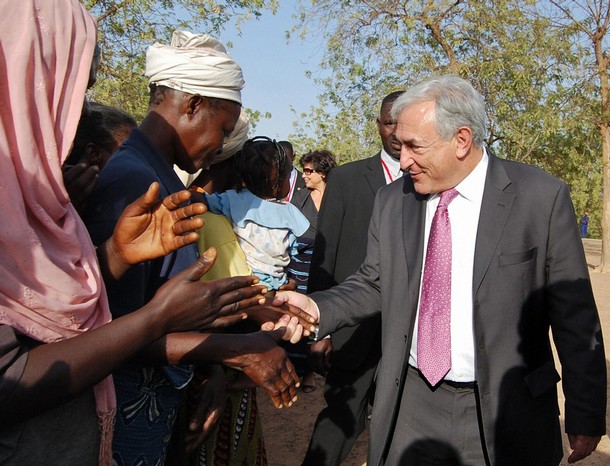- Washington “follows with interest” Morocco’s openness onto Africa (John Kerry)Posted 11 years ago
- The trial of South African Paralympic champion Oscar Pistorius opened in Pretoria on Monday.Posted 11 years ago
- USA welcomes efforts of King Mohammed VI in MaliPosted 11 years ago
- Egypt’s population reaches 94 millionPosted 11 years ago
- Mugabe celebrates his 90thPosted 11 years ago
- Moroccan Monarch to Build a Perinatal Clinic in BamakoPosted 11 years ago
- King Mohammed VI handed a donation of bovine semen for the benefit of Malian breeders.Posted 11 years ago
- Moroccan King’s strategic tour to Africa: Strengthening the will of pan African Solidarity and stimulating the south-south cooperation mechanisms over the continentPosted 12 years ago
- Senior al-Qaida leader killed in AlgeriaPosted 12 years ago
- Libya: The trial of former Prime Minister al-Baghdadi AliPosted 12 years ago
Togo: domestic commercial debt
 “The history of debt relief goes back several decades. It reveals that a country’s accumulation of unsustainable debt stems from such factors as deficiencies in macroeconomic management, adverse terms-of-trade shocks, and poor governance. Debt-relief initiatives have provided debt-burdened countries with the opportunity for a fresh start, but whether the benefits of debt relief can be preserved depends on transformations in a country’s policies and institutions”.
“The history of debt relief goes back several decades. It reveals that a country’s accumulation of unsustainable debt stems from such factors as deficiencies in macroeconomic management, adverse terms-of-trade shocks, and poor governance. Debt-relief initiatives have provided debt-burdened countries with the opportunity for a fresh start, but whether the benefits of debt relief can be preserved depends on transformations in a country’s policies and institutions”.
In the current system of world trade, the Southern countries are disadvantaged and particularly those in sub-Saharan Africa, which export much less than those of manufactured goods from Latin America or East Asia: any increase in their export volume tends to lower the value thereof. Consequently, the trade balance is experiencing a growing deficit. After so many years of structural adjustment policies dictated by the World Bank and International Monetary Fund (IMF), the failure is still present in some sub-Saharan countries, but others are doing quite well. For example, the domestic commercial debt of Togo was gradually blotted and amounts around 9 billion CFA francs by the end of December 2010, the Togolese Treasury has announced. The Togolese government will totally eliminate its domestic commercial debt before the end of 2011. Out of the 32 billion FCFA of commercial debt that the state of Togo was owing to the private sector in December 2010, 23 billion has been repaid. The payment of this domestic debt was enrolled in a the national economy recovery. The state had committed an audit that clarified and quantified the huge domestic debt – 300 billion CFA, inflated by various irregularities and irregular billings. Sorted as product of first necessities or utilities, water, electricity and oil sectors are officially subsidised by the state, aiming to ease the suffering of the Togolese citizens whose purchasing power is relatively low and recognized as one of the lowest in the sub region. However, experts and observers think Remains that these subsidies are not adequate and do not really benefit the poor. These money injections are just fuzzy operations, and the socio-political commentators think that all these subsidies are sources of illegal enrichment, or a way for the power to cover the siphoning of state resources by some of its brass members. That debt was listed as a real obstacle to reviving the national economy especially the private sector development that has collapsed due to insolvency of the state for years. However, the prospect of full payment of domestic debt is accurate with multifaceted support of technical and financial partners of Togo, who welcome the progress of reforms in this country. In early January, Togo has received support of 3, 5 million Euros from France under two conventions. The most important is the budgetary support of 3 million Euros. This financial aid is concomitant with the event of the country reaching the completion point under the Enhanced Highly Indebted Poor Countries (HIPC) Initiative, which will lead to up to 1.8 billion US dollars of debt relief for Togo, representing an 82 % reduction of its external debt in nominal terms, giving the country some leeway for inward investment.
